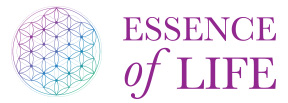Our #boobyluv interview series continues and we are pleased to bring you a chat with Dr. Tom Preston.
 Dr. Tom Preston is a highly acclaimed public speaker, life & business coach, chiropractic consultant and advisor who helps unlock the potential and authenticity of his clients, readers and listeners. His customized approach of unifying professional goals with personal talents has helped countless people discover the success they want to achieve. Dr. Tom believes everyone has the power to find fulfillment in their lives, bringing them closer to their dreams and providing the necessary mechanics to allow them to hold on to those dreams.
Dr. Tom Preston is a highly acclaimed public speaker, life & business coach, chiropractic consultant and advisor who helps unlock the potential and authenticity of his clients, readers and listeners. His customized approach of unifying professional goals with personal talents has helped countless people discover the success they want to achieve. Dr. Tom believes everyone has the power to find fulfillment in their lives, bringing them closer to their dreams and providing the necessary mechanics to allow them to hold on to those dreams.
Dr. Tom is the author of several books, including audio and video programs, and has been heralded as one of the recognized leaders in professional career development.
It seems like everyone is aware of the pink ribbon campaign and breast cancer awareness activities that take place in October. The messages that proliferate are about coping with a diagnosis, finding a cure. We share a common interest in shifting that conversation to “prevention.” What does prevention mean to you?
Prevention is about holism and it’s about optimal human performance and optimal human expression throughout a person’s life. We all have the opportunity to play our role, to fulfill our purpose in life. And by each person fulfilling their purpose, it allows the lives they touch to fulfill their purposes and so on. I call it the great interconnected chain of purpose. If you take a link out of that chain, it directly affects thousands of lives and indirectly probably millions of lives because that linked chain goes on to interact with all 7 billion of us.
If we’re not looking after ourselves holistically – physically, mentally and spiritually – then we take that one link out and it impacts the entire planet. Prevention, to me, is about helping people achieve that awareness, and also helping them care enough about themselves, and/or care enough about the rest of the planet, to look after themselves physically, mentally and spiritually.
In the context of this dialogue, it’s about allowing people to stay whole, to stay on purpose mentally, and to stay well physically because it’s very difficult to fulfill your purpose in life—personally or professionally—if you’re laying in a hospital bed with tubes stuck out of every orifice of your body. Or if you’re just not able to hold together three conscious thoughts because you’re sick, you’re hacking, or you’re stressed out because of results of a mammogram or some doctor telling you the best thing to do is to preventatively lop off your breast.
And why are you passionate about breast health, and women living healthy vibrant lives?
My passion for breast health is because they are currently the main tool to feed and suckle our young so that they can grow. I think this is a crucial thing because breast milk is absolutely, 100%, the best food for babies to have. From a bigger perspective, I think it’s about women being whole and women caring enough about themselves to look after their breasts among other parts of their body so they can be whole and fulfill their roles, their purpose in life personally and professionally.
Too often we talk about breasts only in two (maybe three) contexts: female sexuality, usually as it is contained by male sexuality; and when something goes wrong with breast health – namely breast cancer (maybe we talk about breastfeeding, usually when it has been shunned publicly). Why do you think there is a silence around talking about breasts outside of these topics/angles?
I don’t know the answer to that but I contend, in western culture, there are two things that we seem to be pretty messed up about: sexuality and money. My limited research about that is a lot of messed up stuff comes from Victorian era prudism. Sex was almost a procreation thing and nothing else. Sexuality, then, was a closet, hidden, not okay, not alright thing.
In my perspective, human sexuality is an important part of being human and a great part of being human. And to the degree that you repress something is to the degree that it will be expressed in another form. That’s what a lot of the pornography industry is about: repressed sexuality showing up in a way that it’s okay to watch porn on your computer because it’s kind of quiet and private. It can show up in an inappropriate form, like some of the crazy things that have happened with the Catholic Church (priests aren’t allowed to marry and repressed sexuality shows up in sexual abuse of young boys). It is repressed human sexuality being expressed, in my opinion, in a culturally, socially, non-appropriate way.
We believe that women are unsure of their breasts, and that for many women, their breasts are a source of fear. Perhaps pink ribbon campaigns are in part responsible for this fear, perhaps there is a fear of the sexuality of breasts, or of the power women can hold. Many women are not used to touching their breasts even. What is your opinion of our culture of breast fear?
We have a close friend who is going through cancer. She had a lumpectomy, and then radiation and chemotherapy. The doctor has planted a little seed of doubt that maybe they didn’t get it all … or maybe it’s not as good as they thought it would be and, well, radical mastectomy is the next step. You get a high-profile person like Angelina Jolie who, proactively, lops off her breasts. I think a lot of women feel, “Oh they’re just these bags of glands that only have a purpose in feeding my children, but I’m not going to feed my children with them anymore so let’s just lop them off since they’re unnecessary.” I personally don’t share that view. I think it’s a very myopic, shortsighted view of a much more complex issue.
Breast health is often tied to a sense of nurturing: it’s used to nurture children, it’s used to nourish them, but to also nurture them. If you follow Louise Hay’s work at all, there are certain characteristics or personality traits, different negative energetic emotional experiences that people have that will show up as disease processes in different parts of the body. That’s been my experience. A lot of the women that I know that have challenges with breast health share a common denominator. Many of these women have issues with either being nurtured or nurturing, and so there’s a mental-emotional or mind-body piece to it that is overlooked. So going into the mind-body piece … this is where I oppose the war on drugs and the fight against cancer. You’re bringing up all of this negative energy around a construct.
One of my favourite authors on cancer is a German Doctor named Andreas Moritz who wrote Cancer is Not a Disease—It’s a Survival Mechanism. He sees cancer as the last step of a process, both physiologically and mentally-emotionally or mind-bodywise, that brought the body to a state that said, “hey you’re not paying attention” and “I need to give you a wake up call so here’s a disease process.” It could actually help you get your life back on track towards fulfilling your purpose, personally and professionally.
I’m not a big fan of pink ribbon campaigns because it’s spinning the wrong message. It’s talking about a fight and it’s all about conflict and all about war. But really, if your body created the disease, which in my opinion it creates every disease, then it can heal it. And so to me, it should be more of a dance with these disease processes. One of my consulting clients brought up a nice acronym to me: PAIN is just an acronym for Pay Attention Inside Now. And I wish more people would see that. Instead, we’re in a culture that wants to numb pain and medicate it and not feel it and not be present and not listen to the wisdom of the body, to the teaching it’s trying to bring. Therefore, the disease process gets the chance to either progress or with powerful medication it goes into “remission,” and then sadly, 6, 8, 12, 16 months later the cancer comes back. Well, in my opinion, it never went away. Because the problems that caused it were never addressed in the first place.
Imagine yourself talking with a young girl about body image, body health and growing into a conscientious woman. What would you impart to the conversation of breasts?
Probably something along the lines of you’re a child of God and God doesn’t make junk, and you’re gorgeous, talented and fabulous as you are. So learn to love yourself and your body. One of my mentors has done some pretty high-profile consulting with the supermodels of the world and said it’s amazing that these women who are perceived by the culture as the most beautiful women in the world by many people’s standards, have body issues. Their ass is too big, their nose is too big, their boobs are too small or too big—something. And these body image issues in my opinion are huge. The last fact that I remember memorizing about breast augmentation and reduction is every 7 seconds in America a woman is either getting her breasts changed, modified, adapted, enlarged, shrunk or something. And wow – where have we failed as a culture to help women appreciate their beauty and not try to stereotype beauty into some Hollywood image where if you’re not a size 0 or maybe a size 1, and don’t fit into an A or B cup or whatever goes with that, then you’re not beautiful and that just seems sad to me that we’ve pigeonholed beauty into such a narrow bandwidth.
How has breast health touched your life. In what personal ways are you invested in projects that raise awareness of breast health?
In terms of immediate projects, except this one, there isn’t anything right on my awareness. I have an interest in it because I have a beautiful wife and five daughters. The corollary issues around breast health, about self-image and self-awareness and looking after yourself and many of the things that we’ve covered in this interview, are of interest to me because I have 6 very powerful, very beautiful, very influential gorgeous women in my life. I have a vested interest in this topic.
Leave us with a final word. When we say “breasts” you say:
Beautiful.
Read our past #boobyluv interviews:
Join us here in the coming weeks for more #boobyluv interviews.
I’m learning how to release the fear and love my breasts with the #boobyluv interview series.



